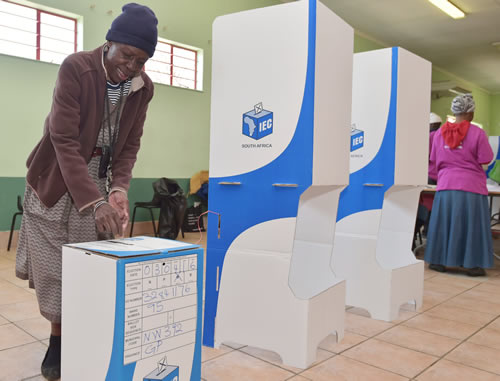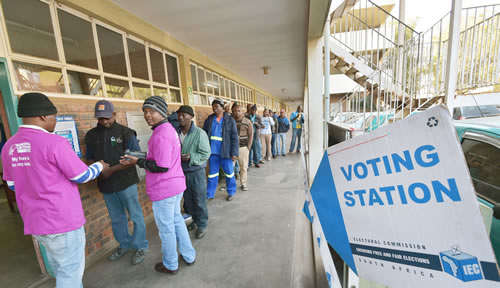The people have spoken and your voice has reshaped local government in many parts of the country.
We can take pride as a nation in the fact that the majority of the more than 26 million voters who had registered for the
3 August 2016 local government elections performed their national duty and exercised their democratic rights.
We can also take pride in the sterling work done by the Independent Electoral Commission (IEC) to oversee 22 000 voting stations across the country where around 200 000 officials managed the storage, distribution and counting of more than 70 million ballot papers.
This is a massive operation which has yet again proceeded smoothly, thanks to the IEC’s efficiency and South Africans’ determination to make this a free and fair election.
As President, I therefore pay tribute to all voters who made their voices heard and to everyone who made a contribution in one form or another to the success of the election.
In the same spirit, we thank political parties for making this a very competitive election and keeping the game clean at the same time. Our democracy is indeed maturing.
We take this opportunity, before the champagne is popped by the political parties, to applaud the IEC for another successful election.
After months of door-to-door visits, large-scale rallies, SMS bursts, debates in our workplaces and homes, and being challenged by messages on posters and T-shirts, we all came together on August 3 and performed our national duty in conditions of peace and unity.
Today, political analysts and media commentators are still scratching around for explanations for why some parties fared better than others in certain areas and why shifts unfolded the way they did.
But, for the millions of voters who placed their envelopes in the ballot boxes on 3 August, it is the quality of life in the municipal wards where they voted that is of greater interest now than picking through the forensic details of the election.
Voters are now entitled to see how and whether political parties will live up to the promises they made in their manifestos which, without exception, promised a better quality of life than residents currently experience.
This is where, as it is often said, the rubber hits the road. And the rubber won’t be hitting the local government road for another five years, so what happens next in all our municipalities will determine our quality of life until 2021.
Voters will have every right to watch every move their newly elected leadership makes, and every move they don’t make.
But, like the difference between a soccer match and the Soweto Marathon, democracy is not a spectator sport. Democracy is about mass participation.
Democracy depends on active citizens who, once they have elected leadership, work with this popular leadership, whose ideas they supported by voting for them, to improve living and social conditions.
The Freedom Charter, whose values and proposals for our country’s transformation have been enshrined in our Constitution, says: “The People Shall Govern”; it does not say the council or the province or a national department shall govern. This means all of us have a role to play in shaping the communities in which we live.
 Democratic participation does not end with putting down the pencil in the voting booth; democratic participation in local government includes a range of actions:
Democratic participation does not end with putting down the pencil in the voting booth; democratic participation in local government includes a range of actions:
• taking an active interest in the work and activities of your ward councillor; attending council meetings, just like members of the public or civil society organisations attend sessions of Parliament;
• reporting faults and complimenting good service;
• preventing and reporting vandalism;
• protecting public infrastructure;
• doing your bit to keep your street and neighbourhood clean;
• being or becoming active in community-based organisations and building positive relations with municipal authorities;
• exchanging views and influencing decision-making, making your voice heard when public comment is invited, and
• preventing and reporting corruption regardless of who initiates it.
In the coming weeks, as executive mayors, mayors, district mayors, councillors, district councillors and members of mayoral committees take up their roles as leaders and public representatives, they will all do so with a fresh mandate from the nation.
The election scoreboard is now behind us, and “winners” and “losers” alike must join hands, not just with each other as political competitors, but with communities to build the better communities for which all of us campaigned.
This is a time for pulling and working together, inspired by the wishes of the millions who made their mark in favour of an even better South Africa on 3 August.

 Facebook
Facebook Twitter
Twitter WhatsApp
WhatsApp